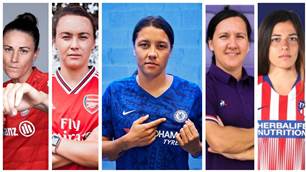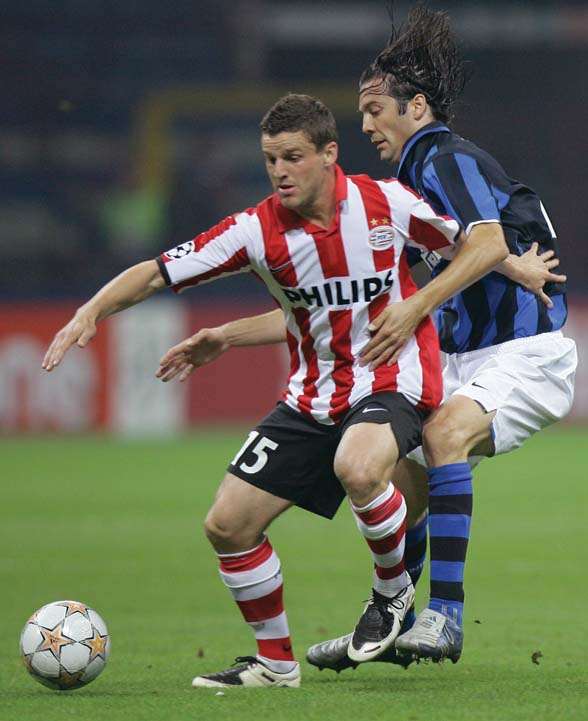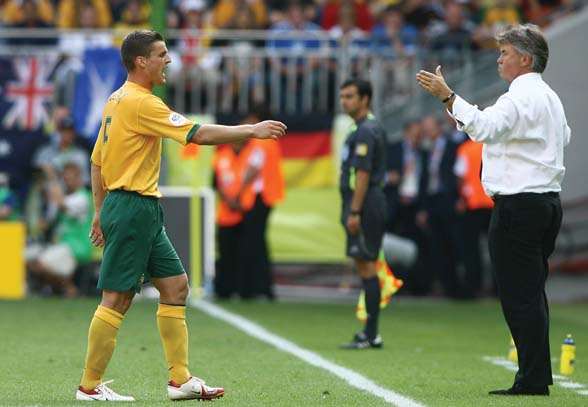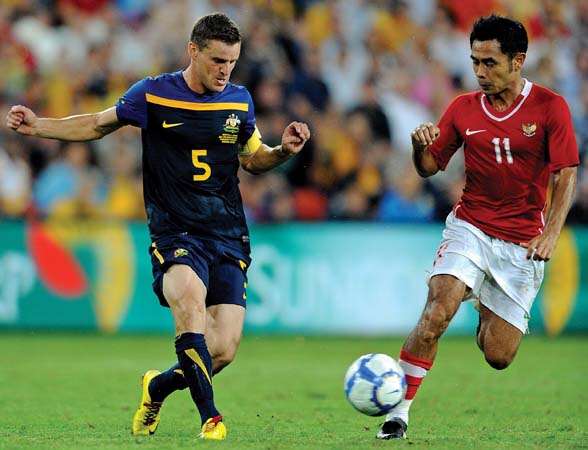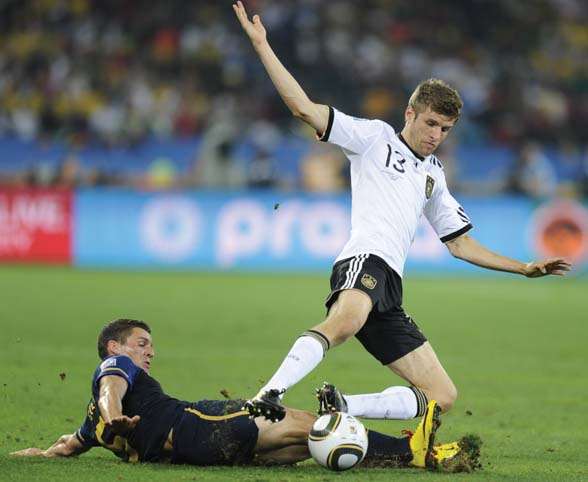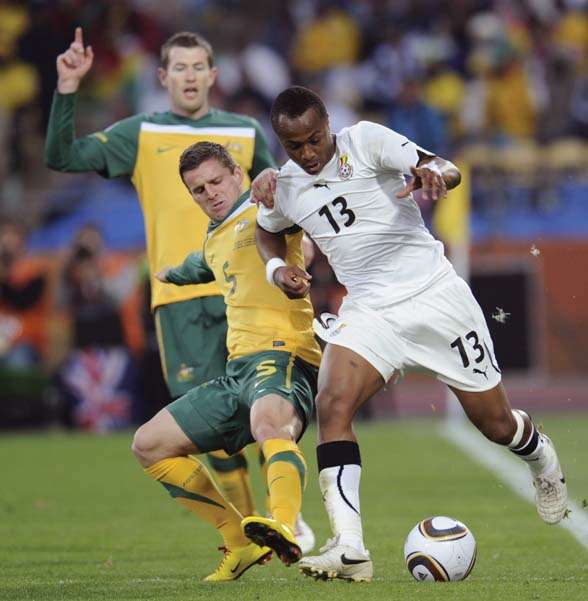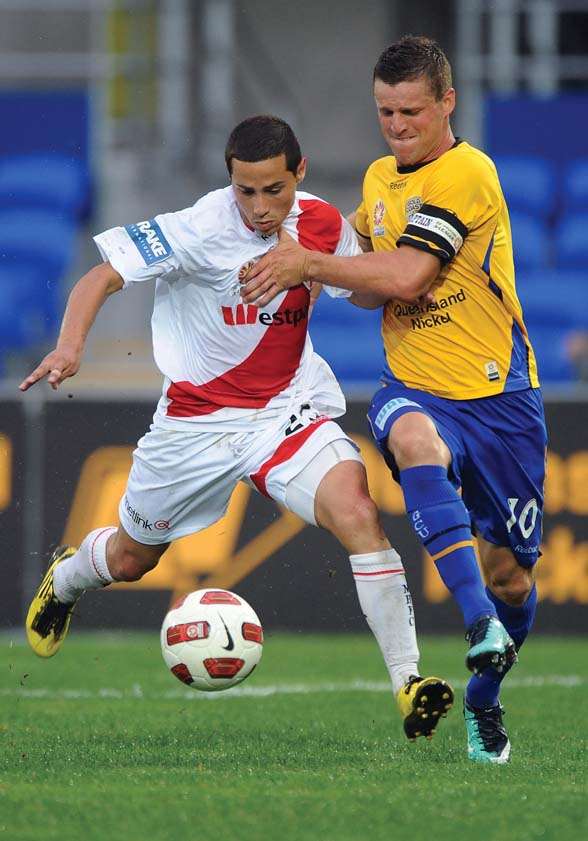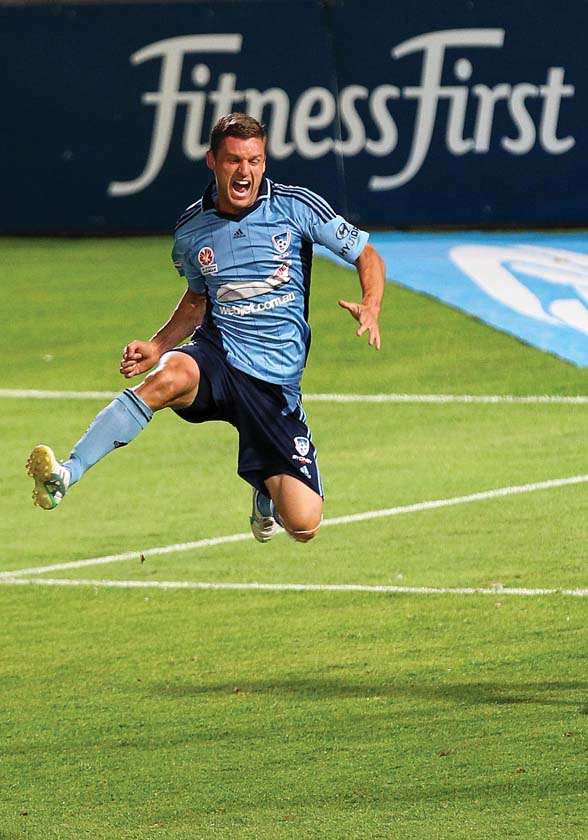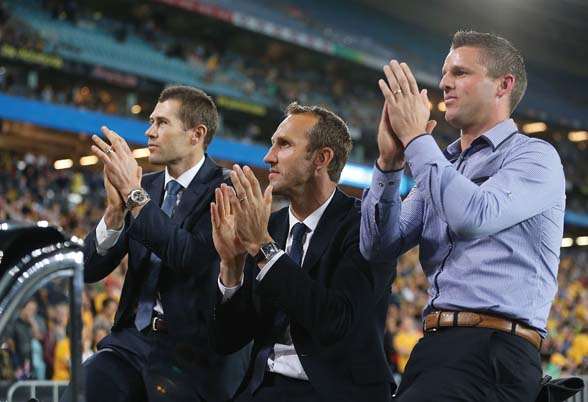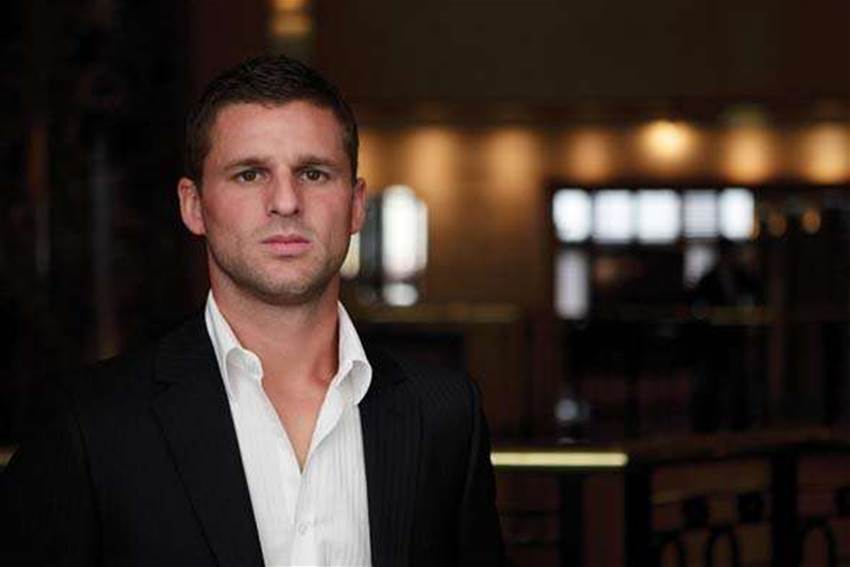Socceroos stalwart talks all things football with our editor Graem Sims.
Jason Culina was a Socceroo stalwart through two World Cup campaigns, one of only two players to have been on the paddock for every minute of Australia’s games during Germany 2006 and South Africa 2010. But even with the benefit of a dedicated soccer coach for a father (Branko Culina), he was something of a late starter compared to other Australian stars from that “golden era”: for five years from the age of 18 he toiled in youth teams and reserves in Holland and Belgium, waiting for his break. When it finally came, he got to experience football at its very highest level at PSV Eindhoven under the stewardship of one Guus Hiddink – though perhaps without the recognition back home that might have come his way if he’d been playing in England or Italy ... But he’s certainly recognised now. He was the first marquee Socceroo to return to the A-League from Europe while still in his prime: in 2009 he accepted an offer to join Gold Coast United. It amounted to one of the first great votes of confidence from a player that here was a league with credible competitiveness. Since his retirement in 2013, he has been an insightful commentator for SBS television, watching vast amounts of Champions League (he played over 50 CL matches himself), A-League, and last year’s World Cup. He kindly agreed to talk all things football with Inside Sport editor Graem Sims.
You were just 18 when you left home and went to Ajax. Why Holland?
Funnily enough I was on the brink of signing in Denmark with a team called BrØndby, one of the biggest clubs there. But when I was on my way to the Under 20s World Cup in Nigeria for the Young Socceroos, that deal fell through. I thought, “Well, I’ve got to have a great tournament here.” Fortunately Ajax were at that tournament and had been tracking me for some time, and they asked me to come over for a few days and have a look and have a kick around. So I did, and while I was there Hamburg were interested as well. So I had an option between Ajax and Hamburg – they were a top team in Germany back in the late 1990s. Anyway, the year before that, my father had gone to Europe on holiday and brought back with him an Ajax shirt with my name on the back! And I thought, “This is destiny – this has to be.” Even though the offer from Hamburg was a lot better, I did listen to my father and signed with Ajax.
I wondered if Branko might have influenced that decision – was it because the Dutch have some kind of superior technical and analytical approach to the game?
Exactly. Also the fact that Ajax had produced so many young players in the past. In ’95 and ’96 Ajax had won the Champions League, and it was only a few years after that (in 1999) that I signed to one of the most successful clubs in the world. Though it didn’t turn out the way I’d hoped – it was probably the most difficult period in my career. But it was also the period in which I learnt the most, which has benefited me throughout my career. If that makes sense ...
Yes, it does make sense. You are a poster boy for the Aussie who goes to Europe very young and does the very hard yards to make their name in football. Aren’t you?
Yeah, I suppose so. I didn’t get my first chance with the Socceroos until I was 24-25 years old. Now you’re getting every Tom, Dick and Harry having an opportunity. I had to do it the hard way. That was my primary school, basically, before I went to high school. And I learnt at Ajax. I was lucky to play with many big-name players – one of them in particular, Brian Laudrup, brother of Michael Laudrup. And they were very, very big in the ’80s-’90s. And Brian looked after me and showed me the way. And then Marco van Basten, one of the biggest names in the game, in my year at Ajax, basically said, “I like you – I think you’ve got something to offer.” And that’s when I started to flourish. I was 24 then and getting too old for the youth team and needed to make that next step. And he was the one that really showed me that he believed in me and told me that I was a good player, and so I started to believe in myself. And that’s when it started happening for me, from that point on.
Did those kind words actually make you play better, or did they just make you realise that you’d got to that level?
A bit of both – it was always in me. The biggest challenge for a sportsman or woman is extracting what’s already in you – getting the best out of yourself week in, week out. The best players in the world can do that, which is why they're the best. The players who aren’t up to that level will do it on the odd occasion, and the players who are really suffering mentally are unlikely to display their best throughout a season. And at that point in time I was really struggling. I’d lost all self-belief, and I basically didn’t want to play football anymore. I didn’t believe in myself. And so when Marco van Basten, one of the best players in the world, pulled me into the coach’s office and told me that he has trust in me, that he believes in you, that he wants to back you up and look after you ... Then you stand up and think, “Well, if he’s doing that for me, then why don’t I believe in myself?” And that’s what really kick-started my career. I’d already missed the first five years, so I wanted to make the most of the rest.
Guus Hiddink was the other great influence on you. You were with him at PSV Eindhoven before you got selected in his '06 Socceroo World Cup squad, right?
Yeah, it was sort of on the brink. In 2005 I was into my sixth year in Europe – I was playing for FC Twente in Holland, who were a mid-table club, and that was my first step up into proper senior football on a regular basis. I had a great year, and in the very last game of the season we came up against Guus Hiddink’s PSV Eindhoven. And we drew two-all and I scored a goal and I played a really good game. And then only a couple of months after that he was appointed Socceroos’ coach. It all just fell into place. The very first team camp was in Holland. And my manager basically said, “Go and have a good camp.” And I went in there and I busted my you-know-what in front of Guus. And from that camp Guus really took notice of me, and then signed me to a four-year deal at PSV Eindhoven that began the most successful four or five years in my career. I played every year in the Champions League. We won three championships out of the four years I was there. And obviously during that period it was probably the most successful Socceroos period ever, under Guus.
Some of us call it a Golden Era for the Socceroos ...
Yeah, when you look at the players in that team all playing at the highest level, at the top of their game, in the biggest leagues of the world. You don’t have that now.
So you’re playing in Europe, in the Champions League, travelling to all the great grounds, going up against the biggest names in world football at the time. And then you decide to come back home in 2009 ... so you could play for Clive Palmer’s team on the Gold Coast. What was the story there?
Basically what you just said. I was coming to the last six months of my contract with PSV and in all honesty I was having my best season. But by then I’d played in a World Cup; I’d played 25 games in the Champions League; I played in a UEFA Cup; in 2000 I played in an Olympics. So basically I’d played in every football event that I could. I got another offer from PSV, and I got an offer from Dinamo Zagreb, in Croatia. And then I had this offer from Gold Coast United ... It just felt like the right time to come back. I’d been in Europe for ten years: I’d gone there as a boy and was coming back as a man with two kids. I’d seen some Aussies come back at 32, 33, 34, and they weren’t able to perform the way they had in Europe. I was 29, nearly 30, and I wanted to come back and be able to run; I wanted to chase; I wanted to be able to fight; I wanted to win things! And I wanted to show the younger generation coming through that this is the level you need to be at. Don’t forget, there was another World Cup in 2010, and it was my aim to come back and show Australian players that you can play in the A-League and get selected for the Socceroos in a World Cup.
That was a big divide at the time, wasn’t it?
It was! And the funny thing was, everyone was against me. No one believed that I could do it. And that made me motivated even more. So let’s not forget that myself and Lucas Neill were the only Socceroos who played every minute of every game for the 2006 and 2010 World Cups. And not only in 2010 did I play every minute, but I was named by the FIFA Coaches Committee as one of the standout players – the best of the Socceroos at that particular World Cup. I proved it to everyone – but I didn’t hear all the journos come out and say I had a great World Cup despite what they had said!
And now the perception of the A-League has changed. Do you get that sense?
Most definitely. If you look at how many A-League players are given a chance in the Socceroos now, we’ve come a long way in the last two or three years.
So you’re back on the Gold Coast swanning around in Clive Palmer’s private jet. Can you give us a good Clive story that sums up those days?
Well, he’s a character. My view is that deep down he is actually a good person – but he will always remain a businessman. We did have everything at the Gold Coast – but that was only the first year! (laughs) We flew around in jets, we stayed in the best hotels, we went on his yachts, we were performing well, we were sitting on top of the table, we had physios at training, we had great training grounds ... but the crowds weren’t there. And when crowds aren’t there that means money’s not coming through the gate, and that means Mr Businessman Clive Palmer is unhappy. And that’s where it all didn’t go to plan. Because in the second year, gone were the private jets, gone were the nice hotels, in came the student accommodation. Gone were the physios at training, in came the appointments just like any Joe Blow off the street. And yeah, it didn’t exactly seem like the club I had agreed to join the year before. But in saying that, we had a great team and a great team spirit there – it was just unfortunate that in my second year there I picked up my big injury playing for the Socceroos. And that was pretty much the end of my Socceroo career and my footballing career as well. But Clive was all right.
But then you find yourself at Newcastle. Can we have a Nathan Tinkler story?
Well, no! Because I never really spoke to him. And to this day I still don’t know why I was sacked. No one has ever got in touch with me! (laughs) That was a strange one because if anything I feel more for my father than myself (coach at Newcastle at the time), because it ultimately ended my father’s coaching career. We were both sacked on the spot without explanation. The way it all went down was not very professional. And it was a tough 12 months for the Culinas. You try and come back better and stronger, but unfortunately our football careers didn’t kick on.
Any coaching aspirations of your own?
Yes and no. I love coaching kids. It’s rewarding watching them improve. There’s a lot less politics involved. I’m helping out at my very first professional club, Sydney United. I coach the under-13s and really enjoy it. The kids sit there and look at you – whether they’re listening or not, they look like they are. And then when the stuff that we’re working on is getting through to them ... That’s why I like working with kids – week to week you can see that improvement in them. That gives me a real joy.
Are you still pulling the boots on at all?
Yes and no. Yes for a bit of fun, no for the serious stuff – that’s all over and out. But occasionally I’ll play in some charity games when it’s for a good cause. Last month with SBS we went over to Canberra to play against the politicians for Harmony Day. We had dinner the night before with all the pollies and then played them the next morning, and unfortunately they were able to rig the game in their favour and we ended up losing. I can’t wait for the next game now ...
Any of the pollies shine on the paddock?
Ah gee, that’s where they rig it, because they get a number of ex-athletes on their side who can actually play a bit of football. At SBS we’ve got two commentators who are ex-players. But the rest, no disrespect to them, they’re better in the office than they are on the field. And all of their guys can actually play a bit.
Did Clive Palmer turn out for them? Goalie maybe?
No, he was at his golf resort looking after his dinosaurs.
Related Articles
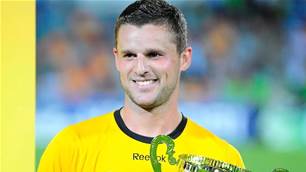
More Socceroo greats happy to help: Culina
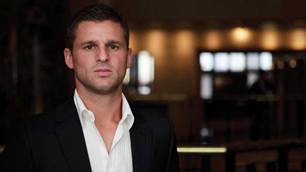
A few pre-grand final drinks with Jason Culina
